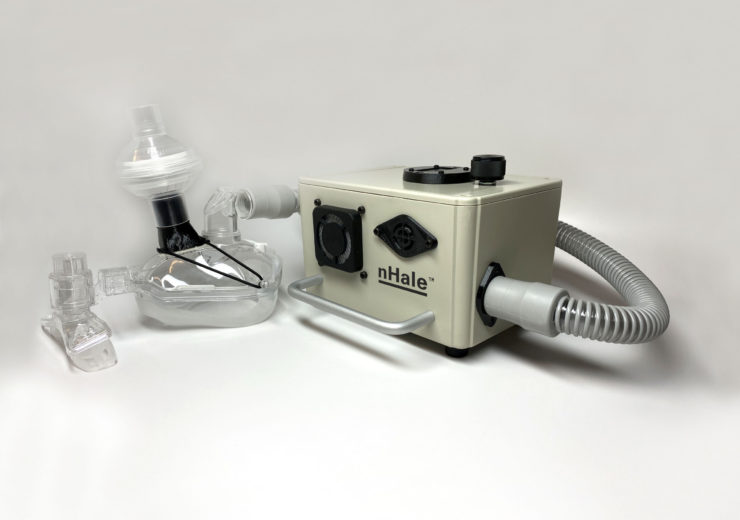nHale is a BIPAP device designed to support respiratory therapy of spontaneously breathing Covid-19 patients weighing more than 30kgs

nHale BiPAP device. (Credit: Business Wire.)
US-based nanotechnology start-up Nanotronics has developed and designed nHale, a bi-level positive air pressure (BIPAP) device to support the non-invasive respiratory needs for adults weighing more than 30kg.
The US Food & Drug Administration (FDA) has granted Emergency Use Authorization (EUA) for the device to support Covid-19 patients hospitalised in traditional healthcare facilities.
According to the company, the device is designed for comfort and ease-of-use with the simplicity of one button.
Nanotronics CEO and cofounder Matthew Putman said: “I was fortunate enough to use a BiPAP machine that provided me with respiratory support after having tested positive for Covid-19.
“Not everyone has that option simply because of accessibility, which to me is unacceptable, and why I feel great about bringing an affordable, human-centered BIPAP device to the people that need it most.”
Nanotronics developed nHale using advanced AI, Intelligent Factory Control
Nanotronics has deployed advanced AI, Intelligent Factory Control (IFC), and sophisticated engineering, to build nHale, and has contacted Northwell Hospital emergency medical physicians during development and testing to ensure the effectiveness of product.
According to the National Institute of Health (NIH) Covid-19 treatment guidelines, noninvasive positive pressure ventilation devices are recommended where high-flow nasal cannula oxygen is not available and endotracheal intubation is not indicated.
nHale is a BIPAP device designed to support respiratory therapy of spontaneously breathing Covid-19 patients weighing more than 30kgs.
The non-invasive respiratory device is intended for use in non-life-threatening situations, where a patient requires breathing assistance but not an invasive ventilatory support, as per standard medical protocols.
The company has developed the device for easy manufacturing at scale and at reduced cost to increase accessibility for US users.
The machine can be used in hospitals and other healthcare facilities, including converted emergency care spaces, prison infirmaries, and nursing care facilities.
